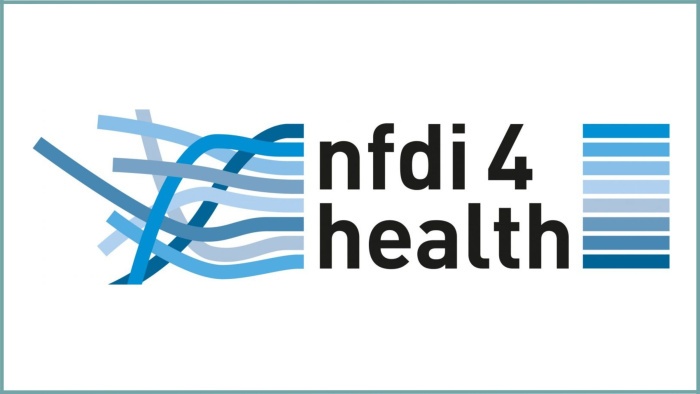TMF Forum: New Information System Provides Data for Health Services Research

The new Information System for Healthcare Data (Data Transparency) by DIMDI will, for the first time in early 2014, provide aggregated healthcare data from statutory health insurance funds for analysis. DIMDI will present the specific data and how to access it at the TMF Forum for Health Services Research, which will take place on January 30, 2014, from 10 a.m. to 5 p.m. in Berlin.
This new system is particularly interesting for health services research. Data of this completeness — across various statutory health insurance funds — has not been available before.
Under the heading "Researching with Routine Data," the workshop will also explore the opportunities and limitations of secondary use of routine data from a scientific perspective. Important methodological aspects of the scientific evaluation of diagnoses and medication data will be presented. The TMF organizes the event in cooperation with DIMDI and the Workgroup on the Collection and Use of Secondary Data (AGENS) of the German Society for Social Medicine and Prevention (DGSMP) and the German Society for Epidemiology (DGEpi). For further information and registration, visit www.tmf-ev.de.
Information System for Healthcare Data (Data Transparency)
Health insurance funds have been providing pseudonymized data for morbidity-oriented risk structure compensation (Morbi-RSA) to the Federal Insurance Office (BVA) for several years. This data includes information on outpatient and inpatient diagnoses as well as outpatient medication provision for those insured under statutory schemes.
With the Data Transparency Ordinance of September 10, 2012, DIMDI was tasked with enabling analysis of this data for a defined user group. To this end, DIMDI is currently establishing the Information System for Healthcare Data.
DIMDI will consolidate the Morbi-RSA data transmitted by the BVA over several years, opening up new analysis possibilities.
In principle, insurance numbers are replaced by pseudonyms. Additional strict data protection measures are also legally required. For instance, DIMDI will practically ensure that individual insured persons cannot be identified based on analysis results.
Users and Objectives
The law (§§303a to 303e SGB V) regulates which institutions are allowed to receive data for what purpose. Only this group will be able to use healthcare data from DIMDI in the future. This includes certain institutions of health insurance funds, the Federal Joint Committee, patient representatives, and service providers at the federal level, as well as research institutions and health reporting institutions. The data will help them improve the quality of care or plan service resources, among other objectives.
Procedure
In the initial expansion stage from 2014, authorized users, according to §303e SGB V, can request the data processing center to evaluate data either using an SQL evaluation program developed by the data user or based on a submitted question and receive the results. In subsequent expansion stages, the data provision procedures will be gradually supplemented or expanded. This will include the possibility, among others, of analyzing pseudonymized individual data at a guest workstation.
The information system is financed by statutory health insurance funds. DIMDI will incur usage fees for data processing, the amount of which is not yet determined. DIMDI expects to begin data analysis in the first quarter of 2014.
Methodology for Routine Data Analysis
There are still a number of methodological questions to be clarified for the scientific evaluation of routine data held by DIMDI. This includes, among other things, the question of data quality, as not all circumstances of data collection are known, for example. The data was primarily collected for administrative purposes, subjected to anomaly checks, and cleansed, so scientists will first need to assess which statements can actually be made based on these data sets. It also needs to be determined which analyses can be conducted based on the available data set and where the limits lie.
The TMF Healthcare Research Forum
The TMF Healthcare Research Forum is an open event series of the TMF, in which several events on the topic of researching with routine data are currently planned. The TMF is an umbrella organization and platform for interdisciplinary exchange and project- as well as location-independent cooperation in medical research. The goal is to collectively identify and solve the organizational, legal-ethical, and technological problems of modern medical research. The TMF provides the developed solutions (e.g., opinions, concepts, guidelines, IT applications, consulting) free of charge. In the field of health services research, the TMF aims to promote the exchange of various stakeholders on conditions, methodology, and necessary infrastructures for health services research and thus contribute to the further development of this research field.
DIMDI
The TMF Healthcare Research Forum is an open event series of the TMF, in which several events on the topic of researching with routine data are currently planned. The TMF is an umbrella organization and platform for interdisciplinary exchange and project- as well as location-independent cooperation in medical research. The goal is to collectively identify and solve the organizational, legal-ethical, and technological problems of modern medical research. The TMF provides the developed solutions (e.g., opinions, concepts, guidelines, IT applications, consulting) free of charge. In the field of health services research, the TMF aims to promote the exchange of various stakeholders on conditions, methodology, and necessary infrastructures for health services research and thus contribute to the further development of this research field.
AGENS
The Workgroup on the Collection and Use of Secondary Data - of the German Society for Social Medicine and Prevention (DGSMP) and the German Society for Epidemiology (DGEpi) has been a forum for users of secondary data, especially data from social security agencies since 2000. AGENS promotes the exchange on methodological and substantive aspects of using these data sources, initiated the "Good Practice Secondary Data Analysis" (GPS), and updated and published the handbook "Routine Data" (2005). The publication of an updated 2nd edition of the manual is planned for the second half of 2014.
Organizational Details
Date
Thursday, January 30, 2014, 10:00 am – 5:00 pm
Location
Kaiserin-Friedrich-Stiftung für das ärztliche Fortbildungswesen
Robert-Koch-Platz, 710115 Berlin
Participation
Media representatives may still participate to a limited extent. For specialist participants, we maintain a waiting list.
Contact Person
Kerstin Bockhorst
Phone: 030 22 00 24 723
E-mail
Press Contact
TMF
Antje Schütt
Phone: 030 - 22 00 24 731
E-mail
DIMDI
Sven Borowski
Phone: 0221 - 47 24 531
E-mail


